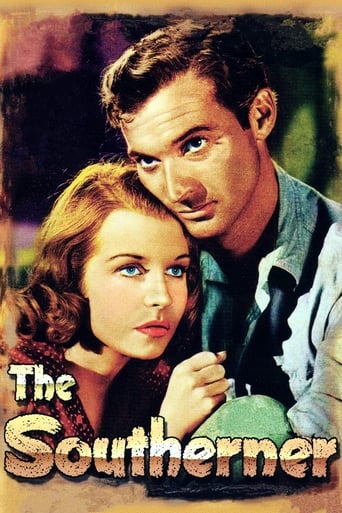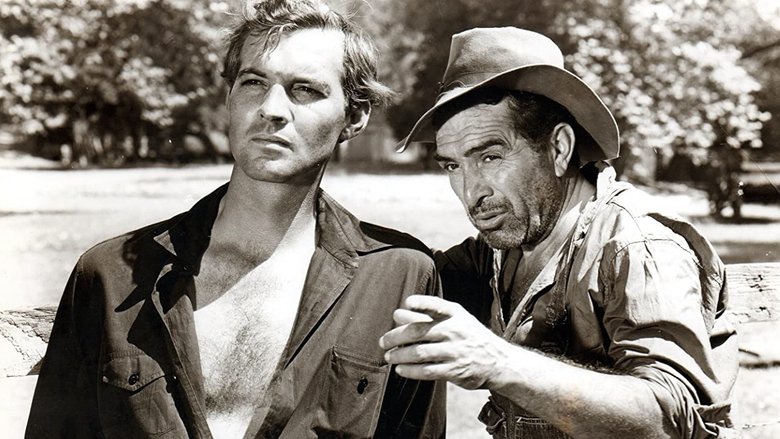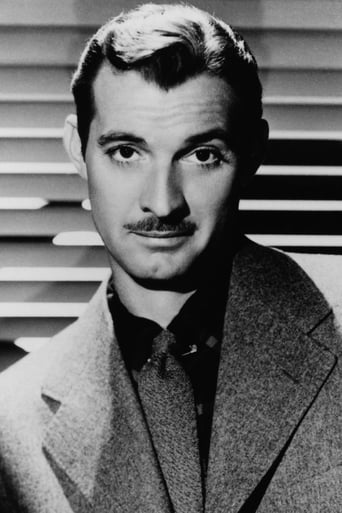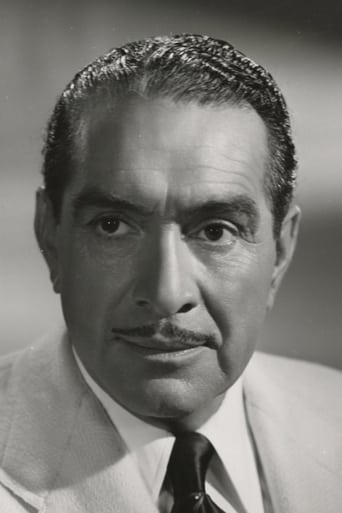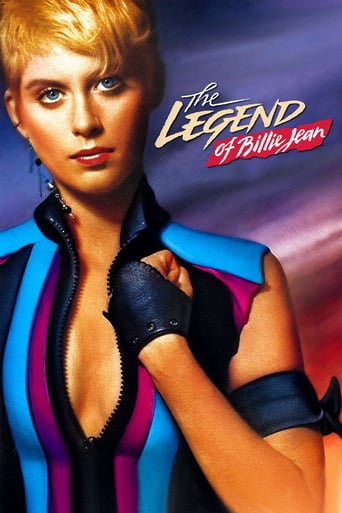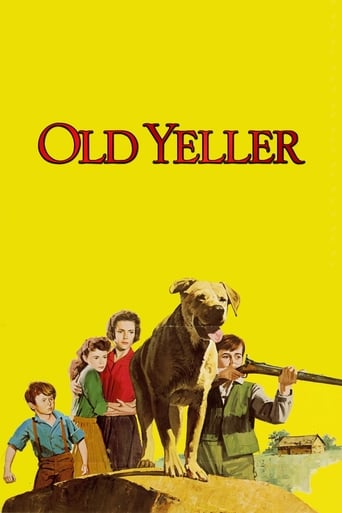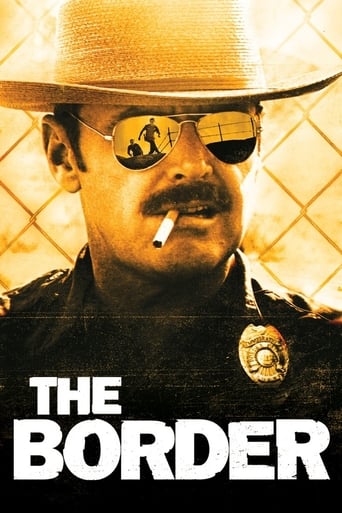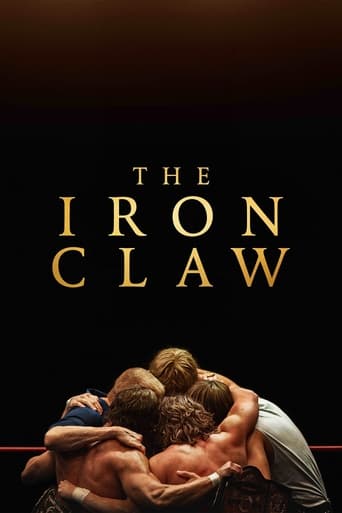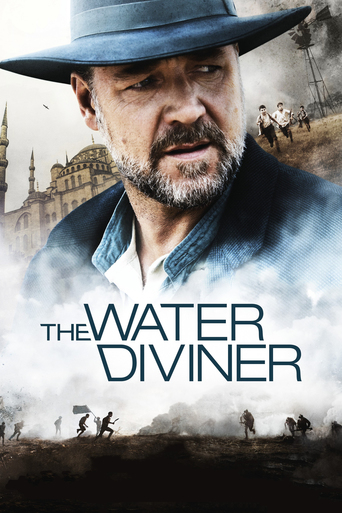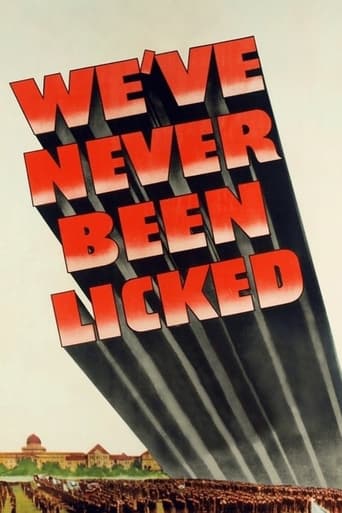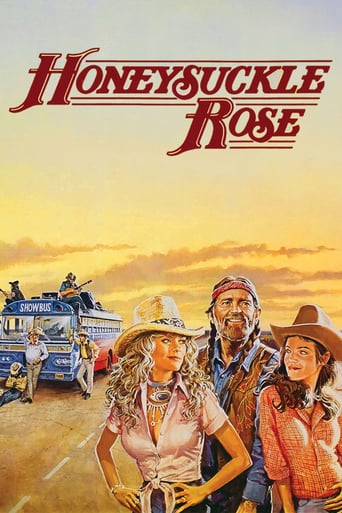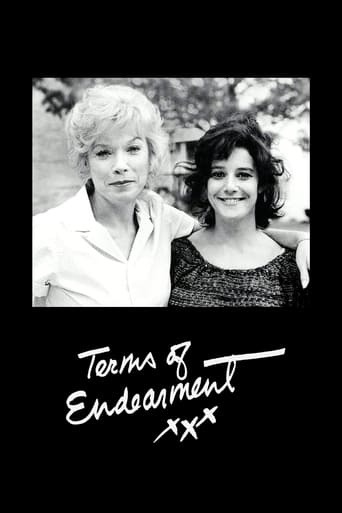The Southerner (1945)
Sam Tucker, a cotton picker, in search of a better future for his family, decides to grow his own cotton crop. In the first year, the Tuckers battle disease, a flood, and a jealous neighbor. Can they make it as farmers?
Watch Trailer
Cast
Similar titles

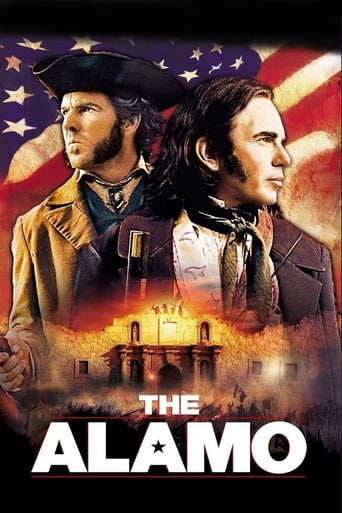
Reviews
Sorry, this movie sucks
People are voting emotionally.
I don't have all the words right now but this film is a work of art.
This is one of the best movies I’ve seen in a very long time. You have to go and see this on the big screen.
This take on the struggles of poor Americans in the south trying to make a go of it when they move onto a run down farm has a lot of the family type of stuff as a novel on America's depression should. Most of the cast of this is not as well known as the Henry Fonda Joad family epic, but that is different in a significant way. The Joads are in the process of trying to escape the dust bowl. This family relocates to the run down farm at the beginning of the film and then the story goes through their day to day living torments.French Director Renoir does a fine job assembling a story that makes a lot of sense and shows farm life struggles in a different way. The most famous cast member to me is Percy Kilbride who would go on to be Pa Kettle. In this movie he is a store clerk he eventually gets married and has a big wedding party nearing the end of the film. Since his bride is not Ma Kettle that makes him a bigamist though there is no relation between the films. Even though this is not the most famous cast around, the performances here are very well acted, and the cast makes the story more believable. The ending after a major climate changing event, is a real life ending. For the folks who survive, life goes on regardless. It is a lesson that needs to be taught more to a generation right now who has the idea that Climate Change is the end of everything as we know it. Climate change is not an ending, it is a disaster that leads to a new beginning by those who survive. There is way too much gloom and doom and too many people getting rich peddling such nonsense.
Sam Tucker (almost sounds like a name a country-based folk song from the 30's or 40's would be about, not far removed from Dan Tucker) has worked the land for other people, but his uncle as he's dying tells him to work for himself. He takes his word more than just to heart, he goes for it and takes his family (wife, two kids, and the uppity grandma) to live in what is basically a shack on a farm where the land is not too expensive. Actually it's inexpensive for a reason: the well doesn't work so Sam has to go next door to the neighbor who doesn't really take kindly to a new family next door (Norman Lloyd is his, uh, son or nephew or something), and he tries to get into farming for cotton.He doesn't have much money or things like tractors, but he's got two hands, a good body and two mules, right? He can make it work... maybe. And this is the scenario that drives one of the few English language films that Jean Renoir made over the years. He comes to this part of America - and, though uncredited, William Faulkner contributes to the script for some of that good ol' fried-Southern talk for authenticity, which is felt - and sees things in a way that is probably truer to the American spirit than some might think some French guy would make.This is all about cutting out your own path and that "pulling yourself by your own bootstraps" mentality which has become a cliché (somewhat on the Right actually, or Libertarian at least) and not going for the path of least resistance, that thing called a "job" for someone else. While one might want to criticize Sam for doing such a hasty action, the drama from the film, which comes in both the personal (his son gets sick from, you know, not having a friggin' cow around at first, and from a lack of vegetables), and the more natural (a big storm and a flood will basically do one in if the cotton's just there and not farmed yet), feels like its own kind of organic criticism.And yet Renoir never judges, and the characters who try to question Sam's motives sound reasonable enough like from his brawny, rowdy friend (who at one point gets into a bizarre, over the top but rather uproarious bottle-throwing fight with a bar owner in the local town, a memorable set piece by far). It's pure in its simple view of this man and how he wants to make a good life for his family, even if he is "gambling" so to speak with the land. There's this feeling to much of Renoir's filmmaking that emphasizes what good can come from this Earth that is farmed and the hard work that goes in to it; there's a few brief dips into religion - at one point Sam stops in his tracks and looks up and talks out loud praying to God, which is a fairly static shot but well acted enough - but mostly it's about having some kind of spiritual, even existential piece of mind: Sam knows the hassles and he knows the drawbacks, and if has to fight for it (and he does) he will.There are caricatures, to be sure, like the old grandmother who spends most of the time complaining (in a move that might make John Ford cringe, she stays out by the vehicle as a storm comes in when the family first comes to the new house, and finally comes in reluctantly for her coffee), or a few of the townspeople or Lloyd's character (even the neighbor's daughter, with some off-and-on come-ons to Sam, is something of a type), but it never stops the film much dead in its tracks. There's a flow to this movie that, like several of Renoir's other films, has something closer to poetry than a hard-lined, traditional narrative arc that has to his A-B-and-C. There's ups and some major downs, and moments where Sam really does doubt himself, and by the conclusion there's this really wonderful moment where Sam goes from giving up to coming back around when he sees what he's accomplished.In short, The Southerner has its flaws in some of the acting, but the execution of this story and how deeply felt it stays to what its trying to show about a rural section of American (or really world) life is admirable and exquisite in its way. Its art is plentiful even as it seems slight and conventional at times, which is a minor miracle especially for someone who's coming to this place anew. 8.5/10
One of only a few films I am aware of from the classic Hollywood era that is devoted to dramatizing the plight of poor white farmers in the southern US during the early 20th century. Others I can think of include: "Tobacco Road", "The Grapes of Wrath"(both directed by John Ford),"Sergeant York"(in part), and "The Yearling", none of which feature cotton growing in the humid South, as does this film, and all of which have a higher profile in recent times than this film, despite its several Oscar nominations. This is an engaging story, with conflicts over whether to try to make it as an independent farmer or to look for an easier and more predictable factory job. clearly, Pa Tucker prefers the country environment.We have mostly 3 generations of Tuckers living under the same leaky roof, including cantankerous Granny, who is often a pain, but can give some insights on the problems she experienced in her younger days as a farm wife as these relate to their present situation. As she related, near starvation and sickness have taken a heavy toll of her extended family over the years. One of the serious problems she is familiar with is 'spring sickness', which is hinted to be pellagra, a common vitamin (niacin) deficiency in the South of those times, caused by too much reliance on corn products, mostly corn meal mush, in their diet. Native Americans had long ago discovered how to prevent this problem by treating the corn with wood ashes, but European settlers never figured out that this treatment was important when their diet was too limited to corn products. The doctor rightly recommended that they include more vegetables and, in the short run, milk, in their diet. Presumably, the latter supplied needed calcium and additional protein, as one of the important symptoms of severe pellagra is skeletal demineralization. In the film, only the boy develops pellagra symptoms, but actually it was much more common among women and girls, as they tended to receive less varied nutrition than men. Back to the story: The Tuckers have rented unusually fertile bottom land to grow their cotton and kitchen garden crops. Unlike Cooper, in "Sergeant York", they don't have to deal with frequent rocks and steep hills. Unlike the Joads, in "The Grapes of Wrath", they don't have to deal with persistent drought, dust storms, and being displaced by mechanized corporate agriculture.Unlike the Baxters in "The Yearling", their crops aren't eaten by wildlife, although domestic stock do make a mess of their veggie garden at one point. But, they do learn that farming on rich bottom land encompases the life and career-threatening risk of occasional devastating floods and hurricanes. Meanwhile, some physical altercations while in town provide some comic relief. J. Carrol Naish played Devers, the Tucker's hard bitten, not often sympathetic, older neighbor.Naish was an excellent, sometimes charismatic, character actor, often playing Native Americans, Italians or Latinos, including Mexican Santa Anna in "The Last Command" and Sitting Bull in "Anne Get Your Gun", and later in "Sitting Bull". He played ethnics in several Fox and MGM musicals, where he served primarily for comic relief. I most remember him as the charmingly irreverent Italian Bayou fisherman in the musical drama "The Toast of New Orleans"Betty Field looks too apple pie fresh as a supposedly dirt poor ignorant southern farm wife. Besides, she was primarily raised in New England. Otherwise, she is fine as the leading lady. Zachary Scott, a native Texan, comes across as more believable in his role. Beulah Bondi, as granny, came across as the most authentic of the Tuckers. She apparently played a rather similar role in the film "The Trail of the Lonesome Pine". Unfortunately, she lost out in her most coveted role, as Ma Joad, in "The Grapes of Wrath". Thus, her role in the present film somewhat makes up for that lost opportunity. With all their problems, the Tuckers come across as spunky and optimistic in their precarious situation, quite different from the decadent downtrodden Lesters in "Tobacco Road", also in a vary precarious financial situation.
The movies (the old movies, that is) are a wondrous thing. You can be convinced of a fixed opinion about a film and then, poof! just like that, your mind is suddenly changed. This happened to me the other night when re-visiting Jean Renoir's 1945 THE SOUTHERNER on Turner Classics Movies. Truthfully, I never liked this highly acclaimed picture and have always held that Renoir's enforced exile to Hollywood after his greatest work, LA REGLE DU JEU, flopped in France in 1939, was, on balance, a disaster; now after seeing THE SOUTHERNER again I think I might have been over these many years a tad too harsh.At the very least, THE SOUTHERNER need be commended for what it is not. It is not THE GRAPES OF WRATH. Beulah Bondi, God preserve us, is not Jane Darwell (As a matter of fact, her cussedly grandmother is a glorious antidote to Darwell's revered stereotype.) Zachary Scott is, surprisingly, more credibly human than and (predictably) less saintly than Hank Fonda. Renoir's mise-en-scene looks like John Ford's in its simplicity but is without Pappy's characteristically annoying cliché visual embellishments. An added plus is Betty Field's beauty as Scott's resilient wife.THE SOUTHERNER is a significant film even if it isn't a great or important one for it might be with this independently produced picture by one of the notorious Hakim brothers that Renoir's interests shifted almost entirely away from character and psychology and toward a more exclusive focus on the effects of environment on human perspective and on the way time shapes the soul through the change of seasons. This philosophical take was expanded to include the acceptance of death when he went to India six years later to film Rumer Godden's autobiographical novel, THE RIVER. Thus, the shift to something religious and quasi- Eastern in outlook probably first took effect for keeps in Renoir's work with THE SOUTHERNER.I'll always prefer the more dramatically eventful, cosmopolitan Renoir of France and the thirties over the more innocent, meditative vagabond that came afterward but I am now willing to admit that the great challenge of his work as a whole is that he is never more sophisticated than when he is being most simple and never more simple than when he is at his most sophisticated.Was this review helpful to you?
